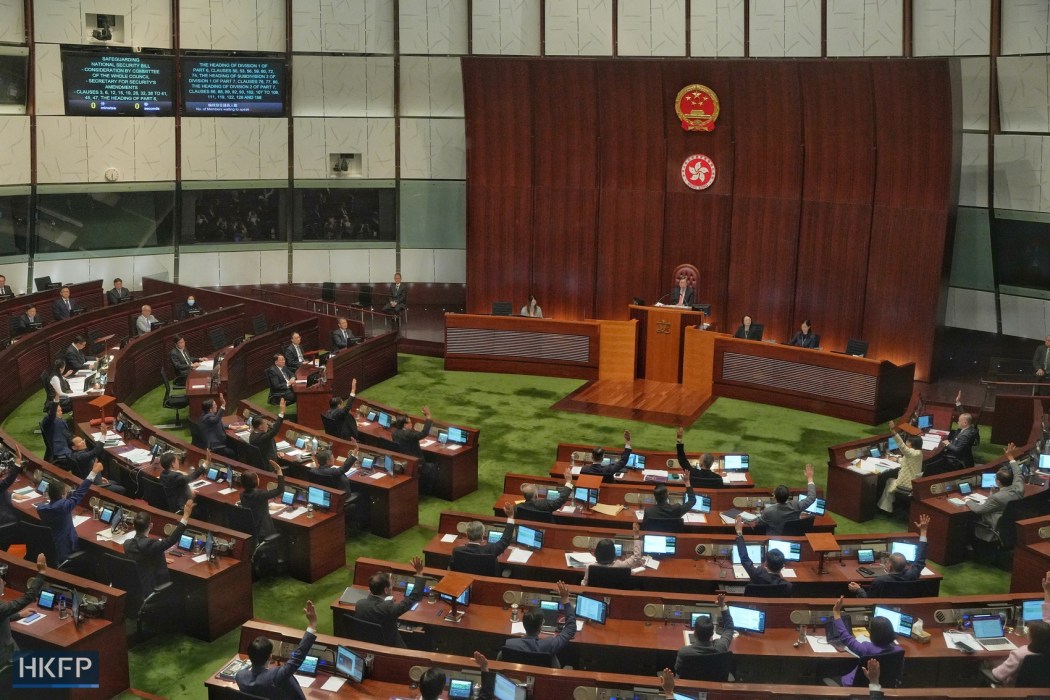China and Australia claimed to have stabilised long-strained relations after talks in Canberra on Wednesday, despite tensions over a high-profile prisoner, trade and China’s crackdowns in Hong Kong and elsewhere remaining evident.

Chinese Foreign Minister Wang Yi visited Australia for the first time since 2017, marking a diplomatic thaw between two trading partners who have sparred over everything from the origins of Covid-19 to military deployments.
Wang said recent efforts to mend relations had “broken the ice”, and that “mutual trust” and “good momentum” were slowly building in the relationship.
“The most crucial thing is to persist in seeking common ground while reserving differences,” he said.
China and Australia have been working to patch up ties after years of bickering and tit-for-tat trade reprisals.
Australian Foreign Minister Penny Wong said it was crucial to recognise “how much progress we have made in a short period of time”.
Despite praising the renewed “stability” between Beijing and Canberra, Wong also hinted at several ongoing points of friction.
“We discussed the sentencing of Dr Yang Hengjun. I told the foreign minister Australians were shocked at the sentence imposed,” she said.
Jailed Chinese-Australian writer Yang Hengjun — also known as Yang Jun — was in February handed a suspended death sentence after a Beijing court found him guilty of espionage.
He vehemently denies the charges.
“I raised Australia’s concerns about human rights, including in Xinjiang, Tibet and Hong Kong,” Wong added.

Hong Kong on Tuesday passed a new national security law, introducing harsh penalties for crimes related to treason and insurrection.
The United States, European Union, United Kingdom and United Nations have issued strong statements criticising the Hong Kong authorities over the law, saying they were concerned about its impact on rights and freedoms in the city.
Protesters gathered on the lawns of Australia’s parliament as the foreign ministers met inside, drawing attention to alleged human rights abuses within China.
A small group of demonstrators later clashed with police outside the Chinese embassy, brandishing Tibetan flags and shouting “free Tibet” as they rushed towards the building’s front gates.
Trade restrictions
Amid weighty discussions of trade and security, the two top diplomats also spent some time pondering giant pandas — one of China’s favourite tools of diplomacy.
Wong said it was “likely” two pandas loaned to Australia in 2009 — Wang Wang and Fu Ni — would remain in the country for the foreseeable future.
Australia’s relationship with China began unravelling in 2018, when it excluded telecommunications giant Huawei from its 5G network on security grounds.
Then in 2020, Australia called for an international investigation into the origins of Covid-19 — an action China saw as politically motivated.
In response, Beijing slapped trade restrictions on a slew of Australian exports, including barley, beef and wine, while halting its coal imports.
Most of those barriers have been gradually wound back as relations have been repaired, although restrictions remain on Australian wine exports.
Wang said a final decision on wine tariffs would be made at the end of the month, signalling restrictions could soon be lifted.
Before the trade restrictions were imposed, China was the largest destination for Australian bottled wine – accounting for 33 percent of export revenue in 2020, according to Australian government data.
Wong said the talks had also focused on nickel markets.
The global nickel market has been upended by a surge in exports from Indonesia — enabled by massive Chinese investments and a revolution in refining techniques.
Prices have fallen about 40 percent in the past year alone, prompting many once-dominant Australian firms to rethink projects or write down the value of their assets.
Dateline:
Canberra, Australia
Type of Story: News Service
Produced externally by an organization we trust to adhere to high journalistic standards.
Support HKFP | Policies & Ethics | Error/typo? | Contact Us | Newsletter | Transparency & Annual Report | Apps
Help safeguard press freedom & keep HKFP free for all readers by supporting our team

LATEST FROM HKFP
HKFP has an impartial stance, transparent funding, and balanced coverage guided by an Ethics Code and Corrections Policy.
Support press freedom & help us surpass 1,000 monthly Patrons: 100% independent, governed by an ethics code & not-for-profit.










